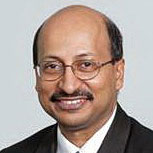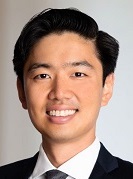CONTROLLING CONTRACTUAL DISCRETION

Venue : Singapore Management University School of Law Level 2, Seminar Room 2.04 55 Armenian Street Singapore 179943
Event Start Date : Thursday 10 January 2019
Event End Date : Thursday 10 January 2019
Event Start Time : 02:15 pm
Event End Time : 04:45 pm
Registration Start Date : Tuesday 11 December 2018
Registration End Date : Thursday 10 January 2019
*All registrations must include designation and organisation. SCCA reserves the right to withdraw any incomplete or incorrect submissions without notifying the registrant.
*The seminar registration has been closed due to an overwhelming response. Please e-mail secretariat@scca.org.sg to be placed on the waiting list.
SYNOPSIS
Contractual options or consents are often expressed to be exercised “reasonably”, or “in a commercially reasonable manner”. Even where a discretion isn’t expressly limited by a reasonableness requirement, the Courts will imply various controls on these discretions, including terms of rationality, and so-called Wednesbury unreasonableness.
Contractual discretions arise in many different contexts: loan contracts, derivatives and in ISDA close-out provisions, which have recently seen a spate of litigation in England. There are analogous provisions in employment (discretionary bonuses); pensions (discretionary benefits); share sale agreements (earn-out provisions). In commercial cases, the debate focusses over the extent to which public law notions of reasonableness should apply also to commercial contracts, and whether there are special rules for employment cases; and, outside the employment context, whether express “good faith” requirements can leave a party free to take full account of its own interests when exercising an option that the parties have agreed is to be exercised reasonably.
There are also important considerations as to what should happen when a discretion has been exercised unreasonably. Should the court substitute its own view of what is reasonable? Or should it base any damages on the most favourable decision (to itself) that the decision maker could have reached?
VK Rajah SC will be chairing the discussion and introducing the topic and the speakers. Edmund King QC and Wei Jian Chan, both acclaimed speakers, will discuss the underlying principles, recent UK case law and offer insights into future developments in this important, and changing, area of law. The talk will be aimed at practitioners with an interest in banking instruments, whether as banks or clients of banks.
PROGRAMME
| 2:15 PM | Registration |
| 2:30 PM | Seminar (Part 1) commence |
| 3:30 PM | Tea Break |
| 3:45 PM | Seminar (Part 2) commence |
| 4:45 PM | End of Event |
SPEAKER PROFILES

Chariperson
V K RAJAH SC
Essex Court Chambers
Mr V K Rajah SC was born in Singapore in 1957. He graduated from the National University of Singapore in 1982 with several prizes for academic merit and subsequently obtained an LLM (First Class) from University of Cambridge in 1986.
He was admitted as an Advocate and Solicitor of the Supreme Court of Singapore in 1983, and commenced legal practice with Rajah & Tann that same year. He was the Managing Partner of Rajah & Tann from 1987 to 2003, prior to his elevation to the Bench. He was appointed a Senior Counsel in 1997.
He was appointed a Judicial Commissioner of the Supreme Court of Singapore on 2 January 2004 and thereafter a Judge on 1 November 2004. On 11 April 2007, he was appointed a Judge of Appeal. He assumed office as the Attorney-General of the Republic of Singapore on 25 June 2014 and remained there until his retirement on 13 January 2017. V K Rajah SC, by virtue of his holding office as a Judge of the Supreme Court for more than 3 years does not enjoy right of audience in any court of justice in Singapore (see section 26(2) of the Legal Profession Act (Cap 161)). He is, however, able to advise on all aspects of court work.

Edmund KING QC
Queen’s Counsel
Essex Court Chambers
Edmund King QC is a Queen’s Counsel at Essex Court Chambers. His practice covers the full range of commercial and commercial chancery work. His cases typically involve fraud, shareholder or bondholder disputes and an international element. His practice also includes oil and gas, commodities, shipping, sovereign immunity claims, and telecoms. He has been listed as one of the Chambers UK Top 100 barristers, and is highly recommended by Chambers UK/Legal 500 in seven categories. Edmund is also called to the Bar in the British Virgin Islands.

Wei Jian CHAN
Barrister
Essex Court Chambers
Wei Jian Chan is a barrister at Essex Court Chambers. He has particular interests in commercial litigation and international arbitration, banking and financial services, all aspects of employment work, insolvency and trusts, and jurisdictional matters (conflict of laws). Prior to joining Essex Court Chambers, Wei Jian graduated with a First Class degree in Law from the University of Oxford. He went on to read for the Bachelors of Civil Law (BCL) at Oxford, obtaining a Distinction. Wei Jian grew up in Singapore.
PUBLIC CPD POINTS
.png) 2 points (provided SILE's CPD Attendance Policy is complied with)
2 points (provided SILE's CPD Attendance Policy is complied with)
Login Here
Past Events
SCCA is proud to support IPOS International for their upcoming conference 10th Developments in IP...







